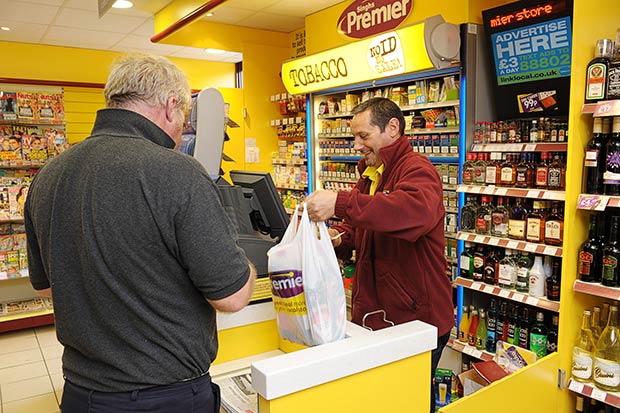A very good friend of mine told me a great story over the Easter weekend. She had been invited to a house sale, where a family were leaving the UK and wanted to flog off the contents of their home.
The wife, an American, turned out to be a formidable saleswoman. The expected bargains were not on display and my friend felt obligated to buy a few things, quickly using her smartphone to check prices.
The classic moment came when the saleswoman asked my friend how much money she had left in her purse. Two fifty pence coins was the reply. I’ll have those said the American. Everything she did not sell was put on a van and sent to a charity shop.
My friend told me that only an American could possibly have achieved this house sale: having an inflated view of the value of her own possessions and the confidence to sell it to friends of friends.
Which had me thinking about the value of scripted behaviour and the confidence that makes selling successful. Is this something on display at local shops or is it an area for improvement. I suspect in most cases it is the latter.
The science is available in a new book, The Challenger Sale, by Matthew Dixon and Brent Adamson. While the book is aimed at people who sell billion dollar infrastructure deals, its findings are useful for local retailers to consider.
Firstly, they find that 53 per cent of the reason for customer loyalty is the sales experience. Only 19 per cent is the company and brand impact; 19 per cent is the product and service delivery; and nine per cent is the value to price ratio.
If this applies in your world, this means that Tesco has to beat you on the sales experience and this may be because it offers its shoppers a “unique and valuable perspective” on the world. Put simply, if Tesco tells the shopper a deal is great, the shopper generally tends to believe it. How do you score on this measure?
A second insight, and remember this is a book about big companies buying from big companies, is that “customers often don’t know how to buy”. How true is that for your shoppers.
One of the ways I judge great shops is when the owners tell me about how they help shoppers find what they need. Such as realising that people had been trained to buy vegetables and fruit bagged up and found it hard to price single items.
A third thing to take from the book is the need to coach your staff. Great salespeople will automatically clinch the sale but the rest of us need help with good processes and sales stories. You need to train your staff to explain why a Mars bar bought from you is better than a Mars bar bought in the multiple competitor across the road.
This is where it gets hard. In most places being “local” is not good enough on its own. You need a compelling story for why your shop is great. And you need to train your staff to use it!





Comments
This article doesn't have any comments yet, be the first!